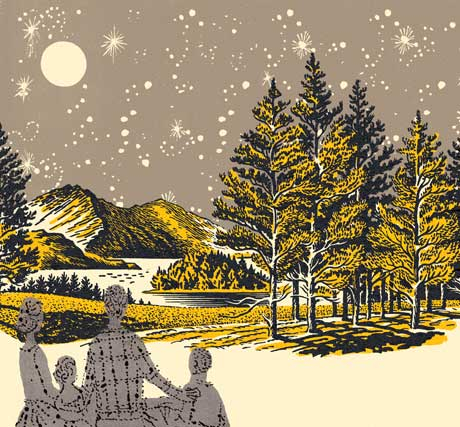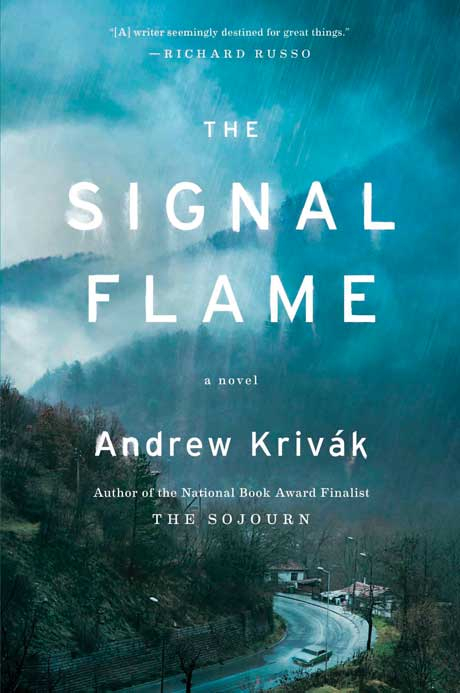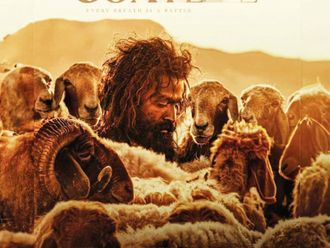Luis Vazquez/Gulf News
By Andrew Krivak, Simon and Schuster. 254 pages. $26
How are we to deal with war? What place shall it hold in our national consciousness? It’s both exclusionary and inclusionary: Most of us never experience it, but all of us are touched by it.
Our wars shape us as nations. Europe and England still reverberate from the world wars of the last century, fought largely on their soil. America’s wars have been fought overseas for 150 years, but they have changed us in ways we can hardly count. And the last war on this continent still resonates both tacitly and explicitly; the forces that drove it are still rampant.
War runs deep into our system, and this is the subject of Andrew Krivak’s new book, The Signal Flame. It’s a subject he knows well. His first novel, The Sojourn (a finalist for the National Book Award), dealt with the First World War in the Austro-Hungarian Empire. His new one is set in the United States, but it explores the legacies of the wars in Vietnam and Europe, as the lyrical prologue makes clear:
“What they shared were the wars. The wars of emperors, presidents, revolutionaries, fights to which men have always gone to fight, for an ideal, for a homeland, for a people. These were the truths that bound the family to each other and the land to which they returned when the fighting was done. But for one.”
The Vinich family is Hungarian. The first arrival, Jozef, came to America after surviving the First World War as a conscript. He arrived with $50, made his way to the small town of Dardan, Pa., and married an American. He worked his way up to become co-owner of the lumber mill and sole owner of 2,000 acres of mountain terrain. His daughter, Hannah, married an immigrant who went back to Europe to fight as an American soldier in the Second World War. They have two sons, Bo and Sam. With each generation the connection to war is maintained. It’s Sam, the younger one, who joins the Marines to fight in Vietnam.
The novel takes place in 1972, between Easter and Christmas, when the family is waiting for news: Sam has been listed as missing in action. The story begins with Jozef’s death, which diminishes the resident family to two: Hannah and Bo, alone in the big house built by Jozef and surrounded by his presence. (Hannah’s husband died years earlier in a hunting accident.) Building and woodworking are in the blood. Here’s Bo, for instance, on the day of his grandfather’s funeral: “He ... sat down at a pale and simple table he had made with his grandfather out of beech felled on their land. He ran his hand across the surface of it as if to feel what he could of those days when he first brought the table into the kitchen and his grandfather touched the surface of it in the same way, and said, Well, son, I do believe you have found your work.”
Bo now runs the roughing mill, sharing the narrow profits with his workers. He and Hannah keep a dog, chickens and a cow; in the past they had kept goats. The connections between this family and the land run deep; on it they have raised food, shot deer, built houses and made furniture. Jozef’s orchard still bears fruit.
But this domestic idyll has been carved out of a wild region in northeastern Pennsylvania, a place full of tempestuous weather and the danger that wilderness contains. Rattlesnakes, predators, rough terrain and, of course, guns. The men bring their own danger to any landscape.
Guns are a constant presence. A hunting scene between old Jozef and young Bo reveals the family ethos: “They came through trees to the edge of the open field, where a silver horizon met silver grass bent down with frost and spread out flat before them. ... His grandfather sat down on a large rock and levered a single round into the Marlin. Bo sat down next to him and moved his hands and feet to keep warm. They waited a long time, until the sun was bright and round above the horizon in the east, when his grandfather put a finger to his lips and pointed in the direction of where a doe had emerged from the trees. He slipped off his mittens, got down on one knee and brought the rifle to his shoulder. Bo followed the sight line of the barrel and saw that it was aimed not at the doe but at the low-slung figure of a dog like no dog he had ever seen, sleek and hunched and twitching at the far end of the field. He looked at his grandfather, as frozen as the grass, then back at the dog just as it leaped. The rifle cracked and the animal arced back in one round motion.”
The Vinichs are hardworking and responsible, good Catholics and good citizens. Their success seems like an immigrant’s dream, but the family is shadowed by grief. Hannah’s husband came home from the Second World War a silent, damaged man. While he was fighting in France, the carnage became too much to bear, and one day he walked away from his unit. Later he was accused of desertion, and when he came home he was put in military prison. He finally returned to Dardan, disgraced and broken. He never recovered. When he died the family suffered doubly, from the loss of his life and of his reputation.
Another local family has a complicated connection to the Vinichs. Jozef bought land from Walter Younger, during a period of financial duress. The Youngers were reluctant to sell and resented the loss of their property. They continued to hunt on it as though they still owned it. So tension between the families was already high before the accident: It was Paul Younger, Walter’s son, who shot Hannah’s husband in the heart. Hannah knew that her husband had never recovered from the war; she understood that she’d lost him before the shot. But she could not forgive the man who pulled the trigger.
In the third generation the two families have a more complicated connection, equally intense: Ruth, Paul Younger’s daughter, is now pregnant with Sam’s child. The families, who have good reason to be at war, now have an urgent reason to find peace. Bo becomes a mediator between his mother and Ruth, and he also pursues a last clue as to his brother’s whereabouts.
Krivak is an extraordinarily elegant writer, with a deep awareness of the natural world. In spare and beautiful prose he evokes an austere landscape, a struggling family and a deep source of pain. The narrative follows the two families as they attempt to accept their deepening connection and Sam’s continuing absence. Krivak sets the grandeur of the mountain as a backdrop to the intimate drama of the heart.
There is no answer to the question of war, how much it can demand or who should suffer. Krivak, in this moving and eloquent book, reminds us that we are powerless over this presence in our lives. It will return, generation after generation, to our families. It will have what it will.
–New York Times News Service
Roxana Robinson’s most recent book is the novel “Sparta.”











